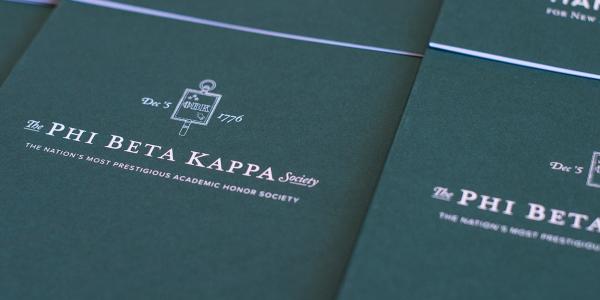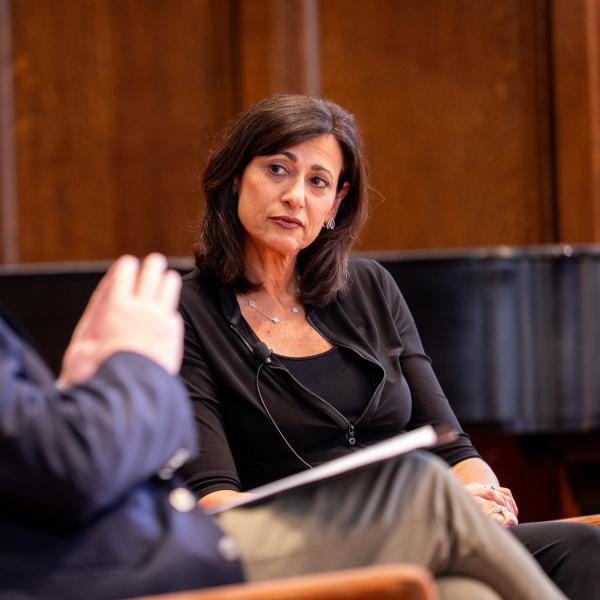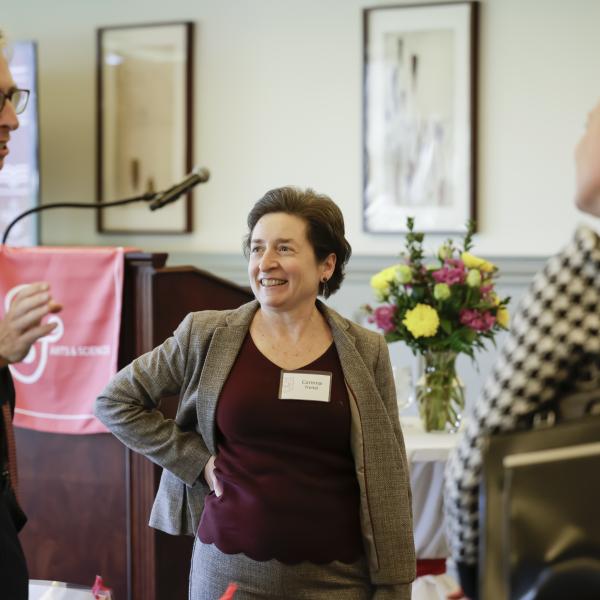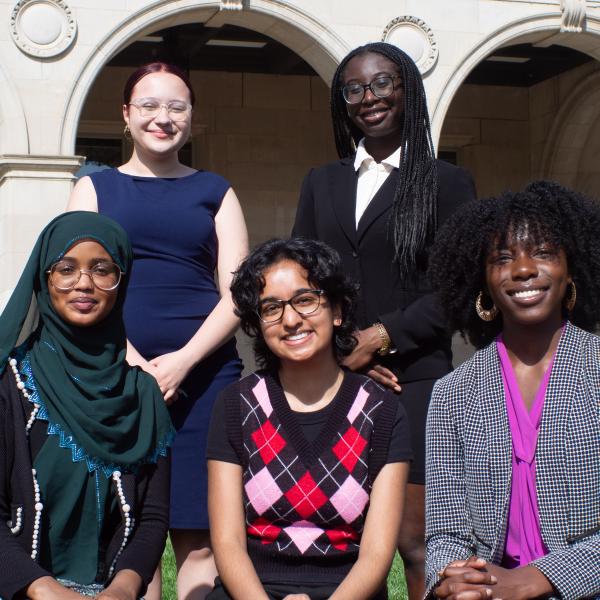When senior Jacob Maddox received the Wheeler Book Award from Phi Beta Kappa two years ago, he was very excited but very surprised. “I had not previously heard of Phi Beta Kappa,” he recalls, “and I was unaware of the book award.” Vincent Sherry, president of WashU’s Phi Beta Kappa chapter, Howard Nemerov Professor in the Humanities, and professor of English, had a similar response when he first encountered the honorary as an undergraduate. “When I got it, I wasn’t quite sure what it was,” Sherry remembers.
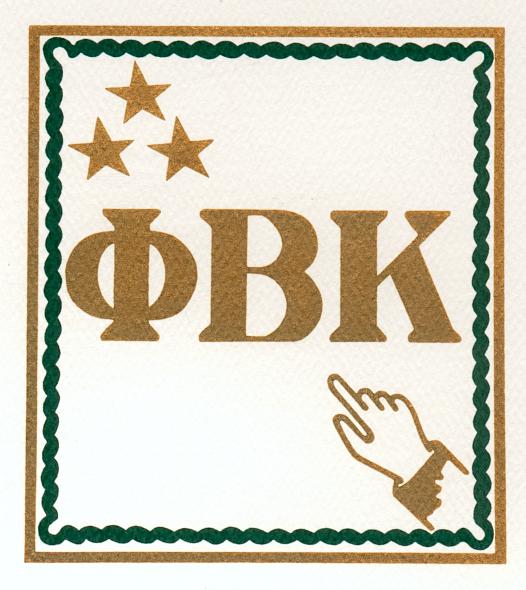
Despite its relative anonymity among younger students, Phi Beta Kappa is the oldest honorary society in the nation, and perhaps the most prestigious. In fact, it was the first to name itself with Greek letters, taking its title from Philosophia Biou Kubernetes, translated as “the love of wisdom, the helmsman of life.” Phi Beta Kappa has chapters at almost 300 of the top colleges and universities in the country and is open to all juniors and seniors in Arts & Sciences. Unlike many other societies, students cannot apply for membership; rather, a selection committee of six WashU faculty and staff members nominate around 90 students who demonstrate an exceptional love of learning. Although the committee takes GPA into account, they focus on the breadth and depth of students’ academic pursuits to inform their selection process.
“We look for intellectual ambition, intellectual energy, and intellectual curiosity beyond the requirements,” explains Sherry. “We look for students who demonstrate a kind of spiritual investment in this enterprise, something beyond just checking the boxes.” Students with perfect GPAs, for example, certainly ought to be celebrated; however, if they only venture beyond their fields to fulfill distribution requirements, they have not necessarily met the standard that Sherry describes, a “learning beyond the grades – learning for the sake of realizing oneself at this higher level.”
Phi Beta Kappa came to WashU in 1914 and has inducted numerous eminent alumni. Many will recognize Gary Sumers (AB ‘75), for example, from the recently renovated Sumers Recreation Center and the soon-to-be-built Sumers Welcome Center. WashU is also home to about two hundred faculty and university officials who were inducted into Phi Beta Kappa at their own undergraduate institutions, including Chancellor Mark Wrighton; Nancy Berg, chair of the department of Jewish, Islamic and Near Eastern Languages and Cultures, and professor of Hebrew language and literature; Justin Fox, associate professor of political science and director of undergraduate studies for the department of political science; and Martin Israel, professor of physics.
Maddox was nominated to Phi Beta Kappa this spring, joining the legacy of impressive faculty and alumni. Two years ago, he received the Wheeler Book Award (named for the same Burton Wheeler as Wheeler House on the South 40), which recognizes several sophomores for admirable course selection and achievement in liberal arts during their first three semesters at WashU. Maddox’s intellectual enthusiasm has continued, and this spring he was nominated for membership. Maddox’s love of learning shows even in the breadth of his majors; in addition to a double major in philosophy and anthropology, he also has a minor in psychology. Throughout college, he has served as the president of the Philosophy Club and is currently a research team leader for anthropology professor Heather O’Leary.
Maddox credits his success at university to the people in his life. “I have spent a lot of time focused on my classes and academics. However, relationships have been the most impactful part of college,” he says. “I’ve met some of the most caring people I know here and have been inspired to become more caring myself.” His dedication to others shows in his extracurricular involvement, which includes GlobeMed, Uncle Joe’s Peer Counseling and Resource Center, and the America Reads program with the YMCA. Maddox plans to continue this commitment to others after he graduates; this summer, he will work as a teaching fellow with Breakthrough Collaborative in Austin, TX, teaching 2-3 middle school classes throughout the summer. After that, he hopes to work with City Year in Chicago or with JusticeCorps in Los Angeles. “Long term, I hope to attend law school, and after that to either work in public policy or at a non-profit,” he says.
For Maddox, Phi Beta Kappa is a rewarding, culminating experience that not only reflects his successes at WashU but has also helped him to reflect on his past four years. “I hope that my induction into Phi Beta Kappa is both a reflection of my hard work and the care of others around me,” he says. “I hope to use this accomplishment to better enable me to meaningfully impact a community in the future, whether through my career, or otherwise.”
Even before hearing of Phi Beta Kappa, Maddox demonstrated the high standard of learning that that the honorary celebrates. However, Sherry hopes that in future Phi Beta Kappa can serve as an aspirational model for students from the outset of their college experiences, calibrating their intellectual ambitions. “At WashU, we’ve got a lot of very ambitious, very hard-working students,” Sherry says. “We want to pose Phi Beta Kappa as a counter-model to the understandably applied model here, which is return on investment for this very expensive undergraduate degree. But we want students to think beyond that, to what their education really means. It’s not just a ticket to a job – it’s the beginning to a life of learning."
